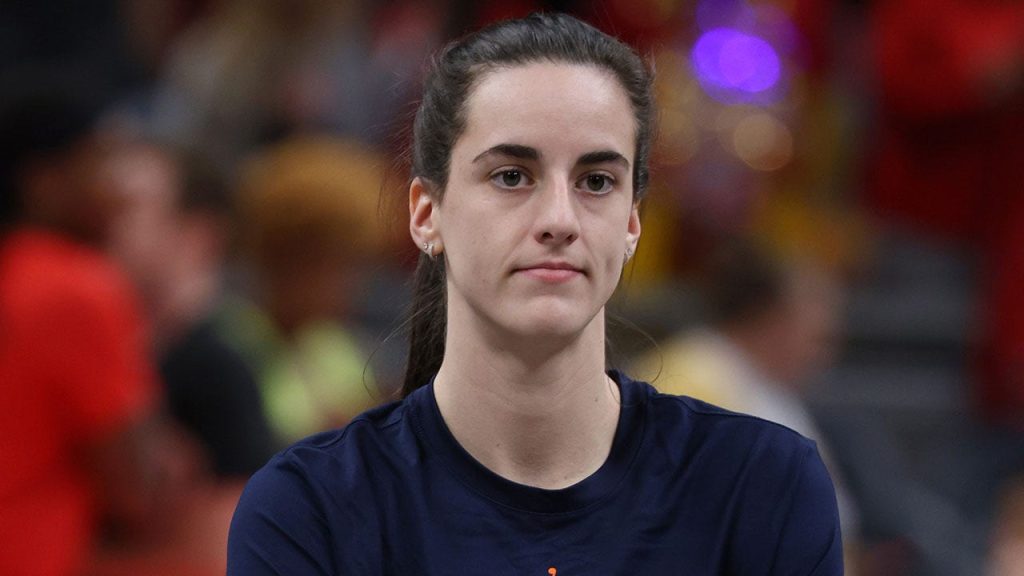Caitlin Clark’s recent appearance on the “New Heights” podcast, hosted by NFL stars Travis and Jason Kelce, ignited a conversation about the evolving landscape of college athletics, particularly the increasing prevalence of athletes utilizing the transfer portal. Clark, a prominent women’s basketball player who remained loyal to the University of Iowa throughout her collegiate career, expressed concerns about the potential erosion of amateurism in college sports due to the ease with which athletes can now switch schools. Her perspective reflects a growing sentiment among some who believe the current system, while offering athletes greater autonomy, may be detrimental to the traditional values associated with college athletics.
The transfer portal, introduced in October 2018, has undoubtedly revolutionized college sports recruiting. Prior to its implementation, athletes faced significant hurdles in transferring, often requiring permission from coaches or athletic directors who held considerable power in these decisions. The portal streamlined the process, allowing athletes to explore their options more freely. This shift coincided with the legalization of Name, Image, and Likeness (NIL) deals in 2021, further empowering athletes to leverage their marketability for financial gain. Clark, while acknowledging the benefits of these changes, argued that the combination of the transfer portal and NIL has created an environment where athletes are increasingly motivated by financial considerations and less bound by loyalty to their schools.
Clark’s primary concern centers on the potential for athletes to treat college sports as a stepping stone to professional leagues, prioritizing personal advancement over team commitment. She lamented the loss of the “amateurism” that once characterized college sports, suggesting that the current system, with its emphasis on player mobility and financial incentives, resembles a “minor league” system. This perspective underscores a fundamental tension between the traditional ideals of college athletics, which emphasize education and team unity, and the increasingly professionalized nature of the sport, driven by factors such as NIL deals and the pursuit of individual recognition.
The NCAA’s attempts to regulate the transfer portal have faced considerable challenges. In 2023, the organization implemented a rule limiting underclassmen to one penalty-free transfer, requiring waivers for subsequent transfers. However, this rule was met with fierce opposition, including threats directed at committee members, highlighting the deeply entrenched views on both sides of the issue. Ultimately, the NCAA rescinded the rule in March 2024 following legal action from the U.S. Education Department and several states. This demonstrates the difficulty in striking a balance between providing athletes with freedom of movement and maintaining some semblance of control over the transfer process.
Both Travis and Jason Kelce echoed Clark’s sentiments, expressing a preference for the older system where transferring was less common and athletes demonstrated greater commitment to their schools. Travis, who played college football at the University of Cincinnati, emphasized the lack of transfer opportunities during his era, suggesting that the current system undermines the sense of loyalty and dedication that once defined college sports. Jason, also a Cincinnati alumnus, criticized players who transfer before the playoffs, arguing that such decisions demonstrate a lack of commitment to the team and the university. Their perspectives, rooted in their own experiences, offer a glimpse into the changing attitudes towards player mobility in college sports.
The conversation sparked by Caitlin Clark’s comments underscores a broader debate about the future of college athletics. The transfer portal and NIL deals have undeniably empowered athletes, providing them with greater control over their careers and financial prospects. However, these changes have also raised concerns about the potential erosion of traditional values such as amateurism, team loyalty, and the educational focus of college sports. As the landscape continues to evolve, finding a sustainable balance between athlete autonomy and the integrity of college athletics will remain a central challenge for the NCAA and universities across the country. The debate reflects a fundamental tension between the evolving desires of student-athletes and the desire to preserve the unique character of college sports, a tension that will continue to shape the future of collegiate athletics.

